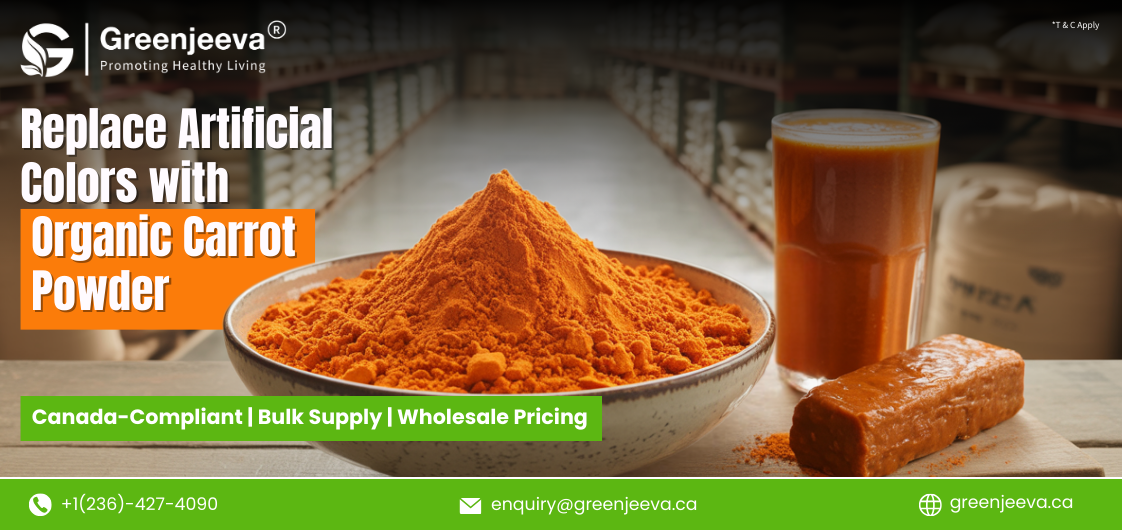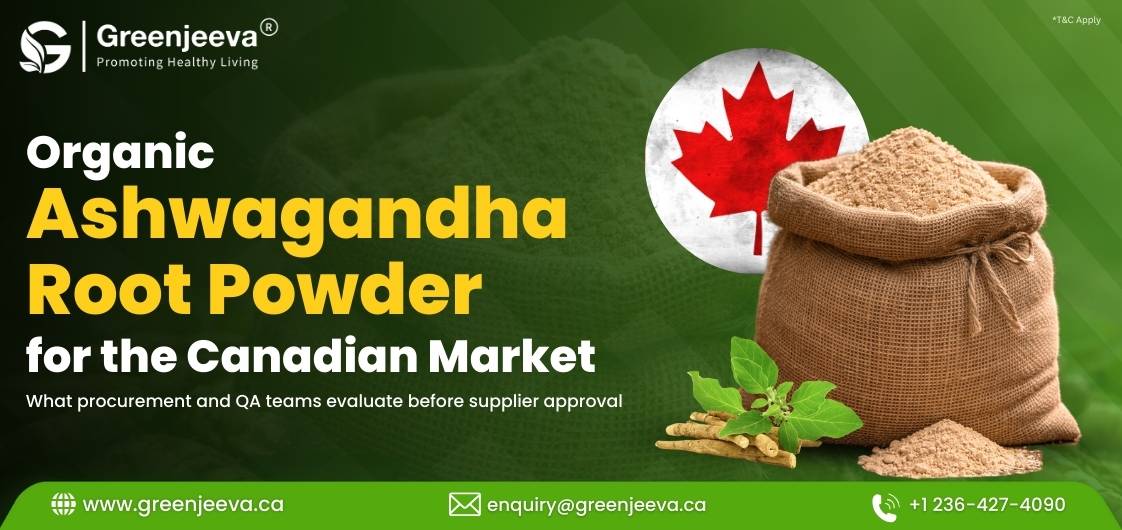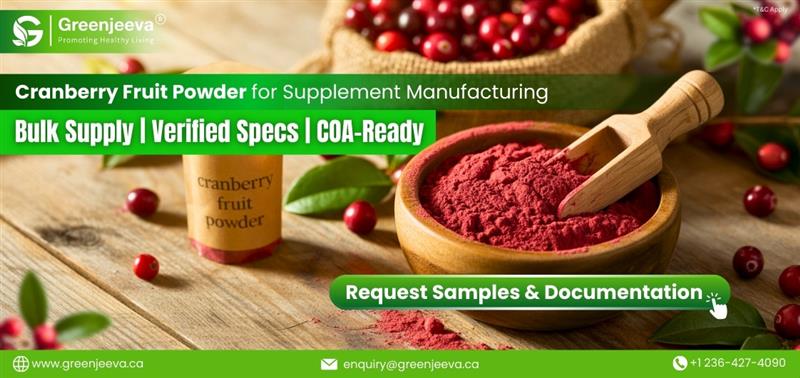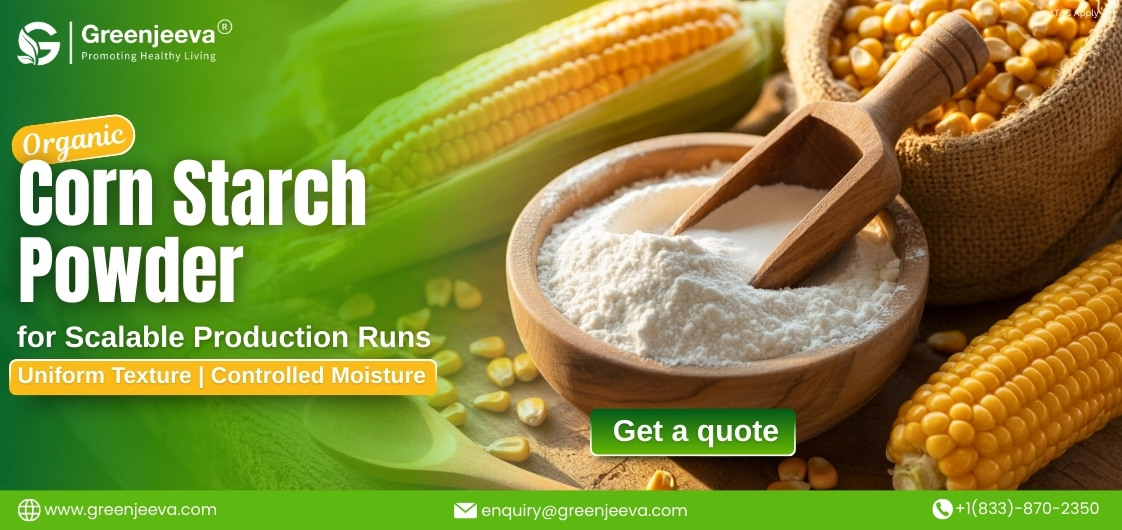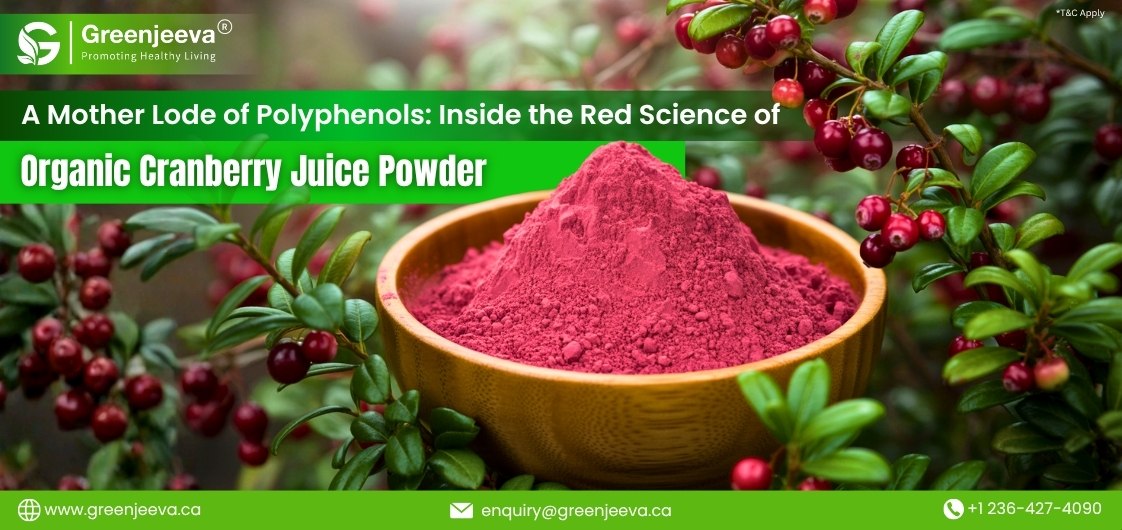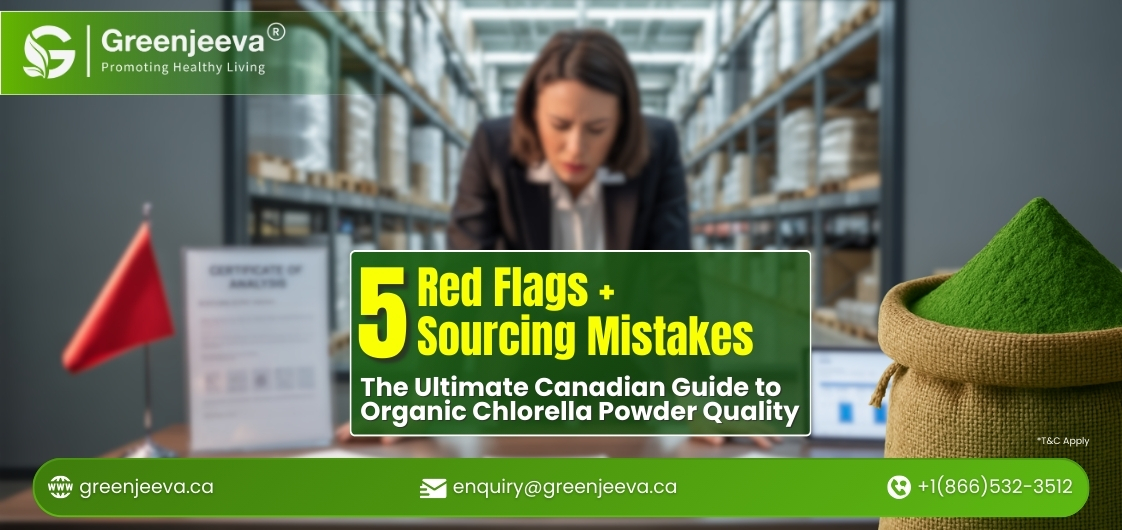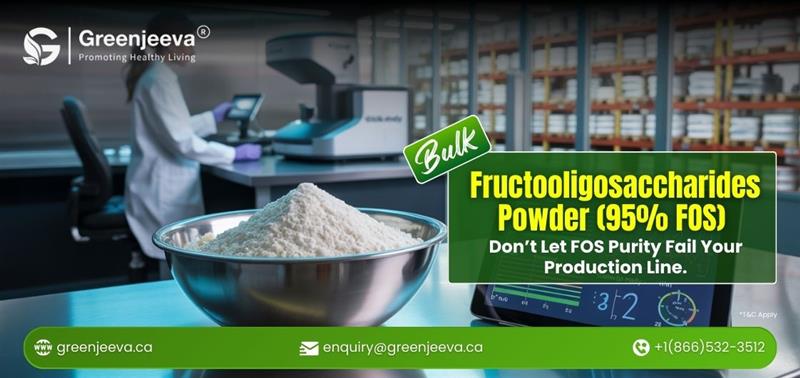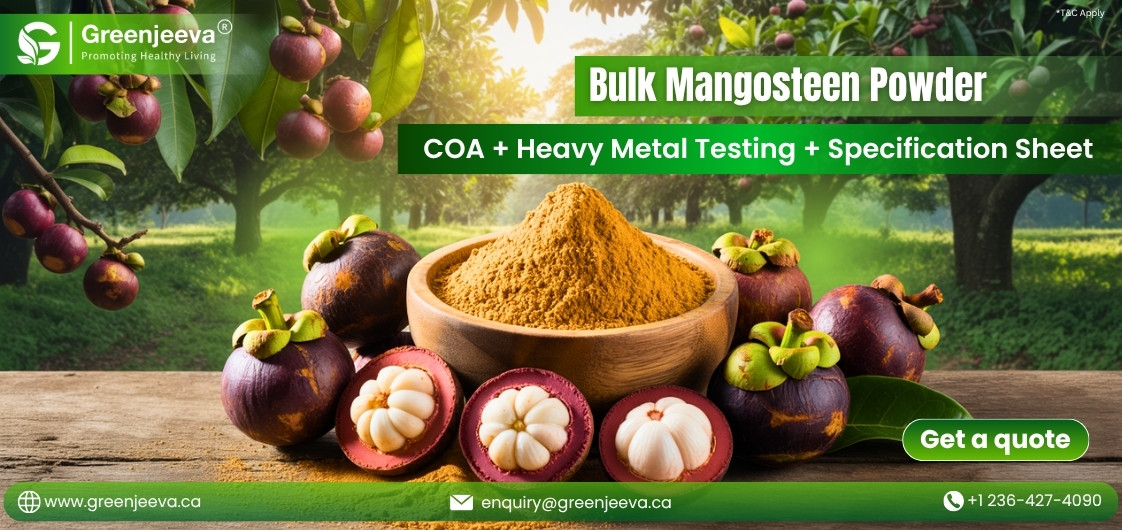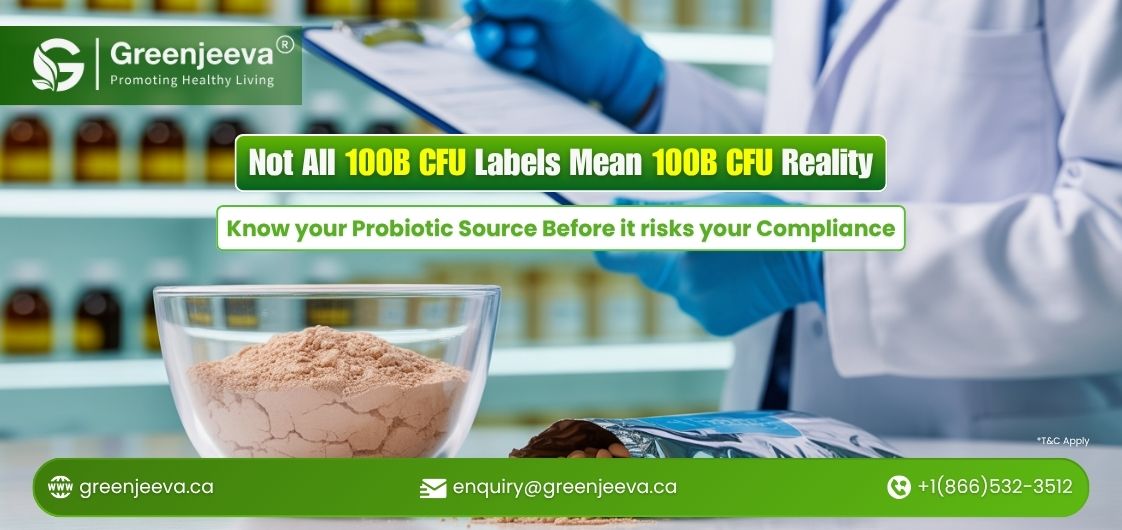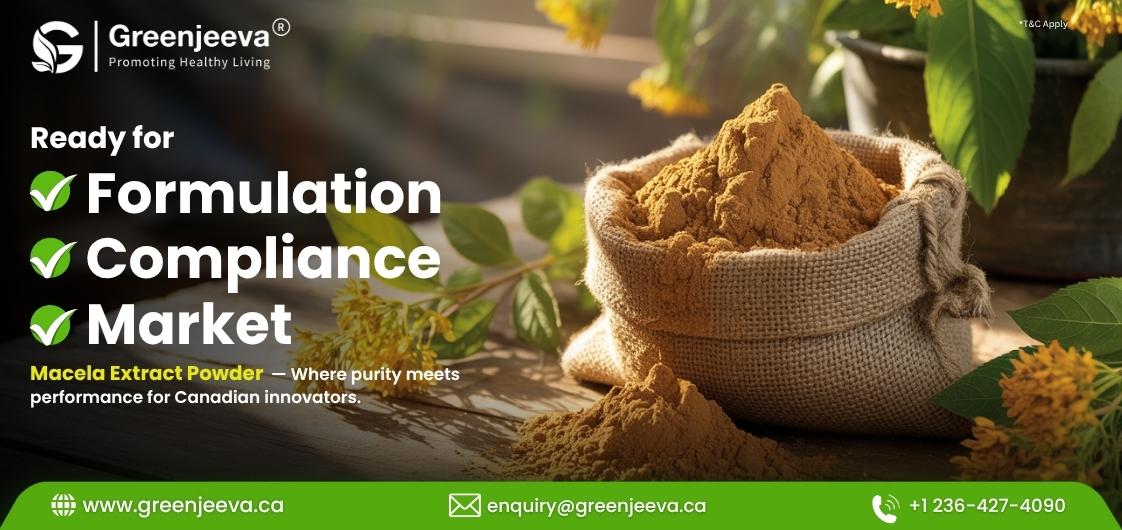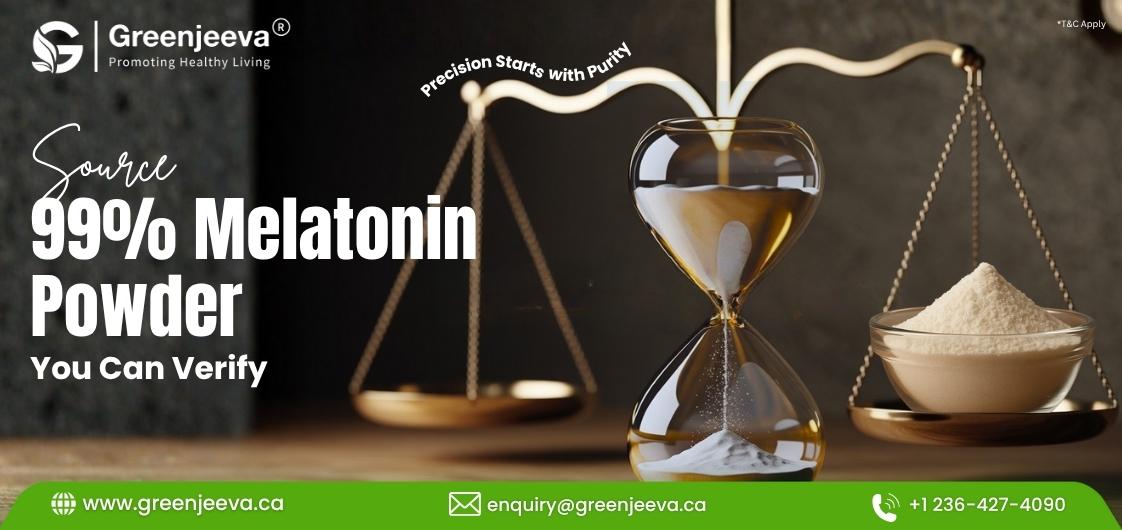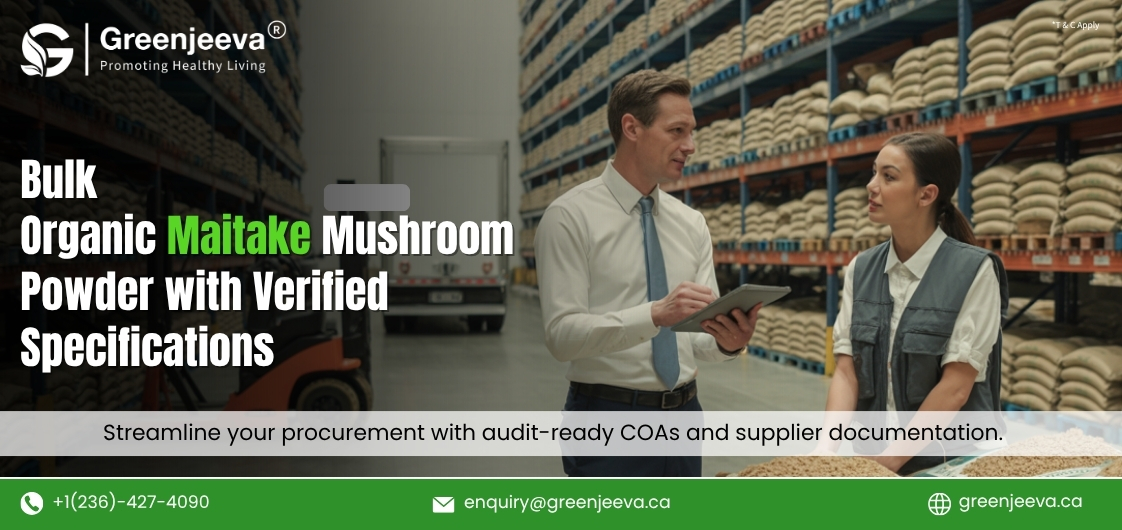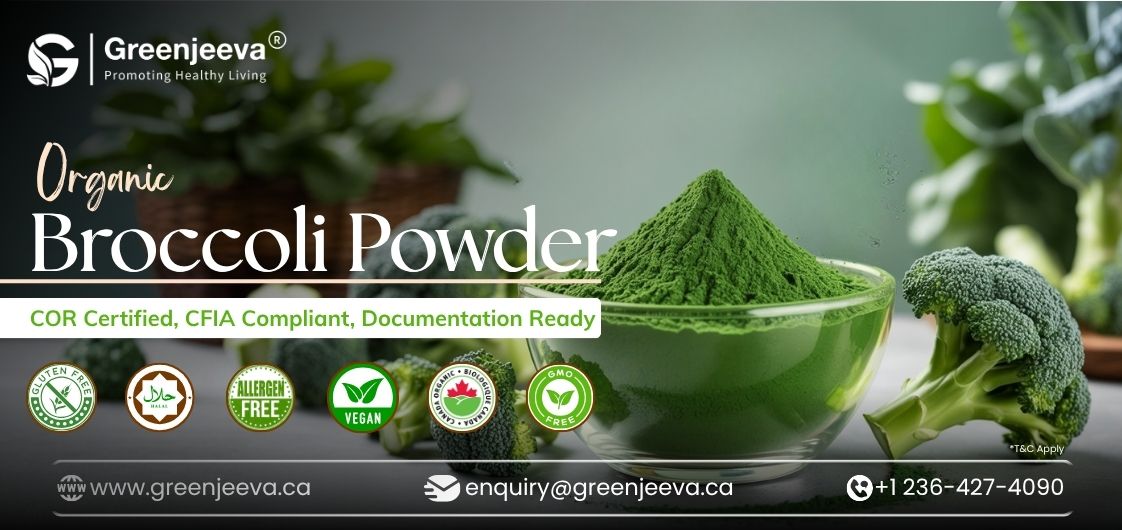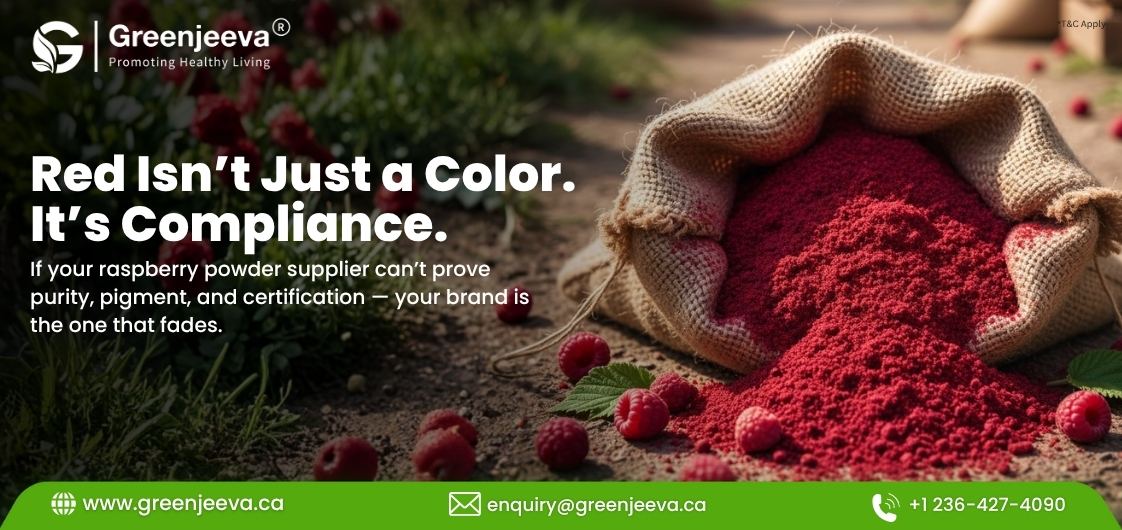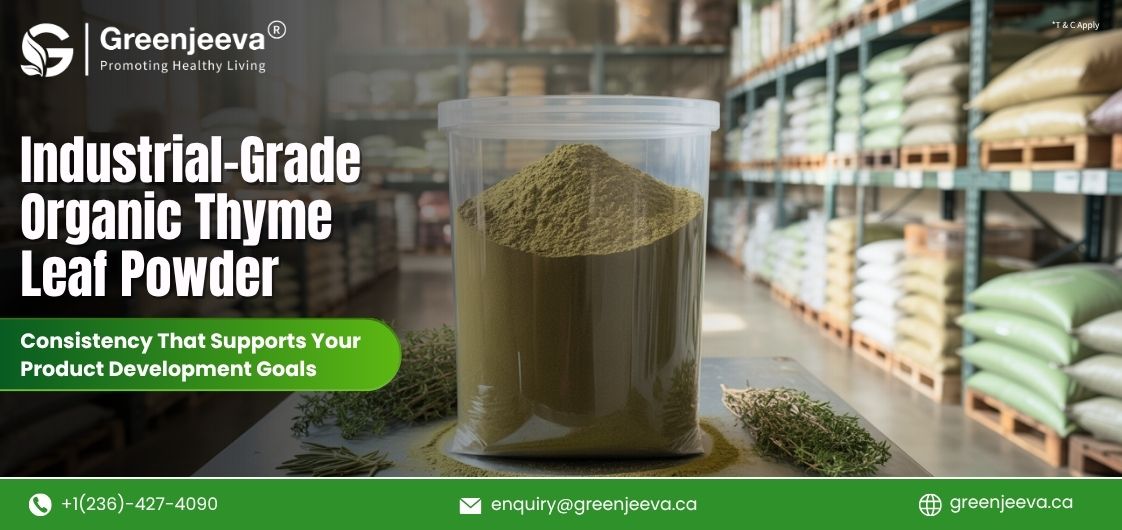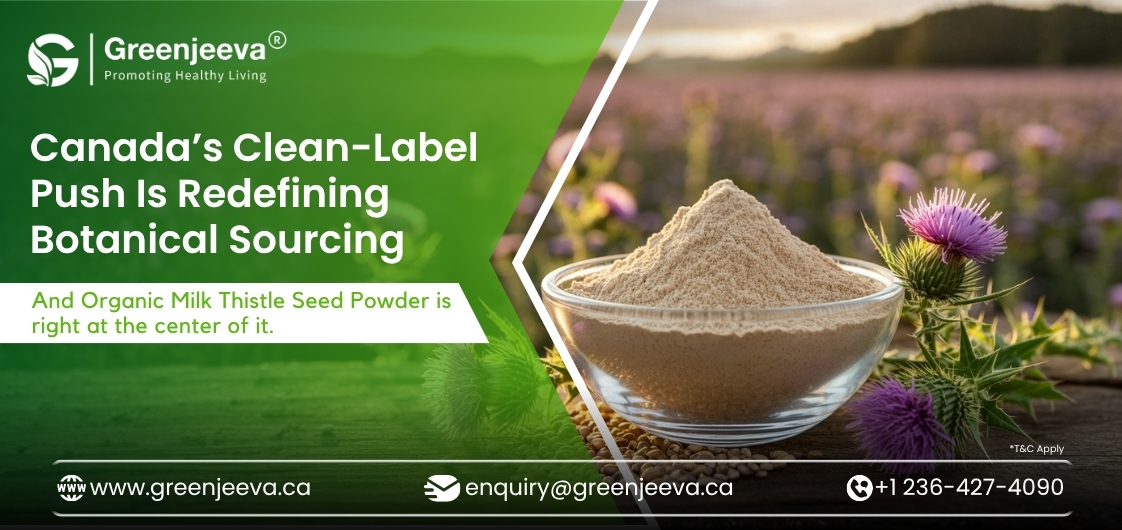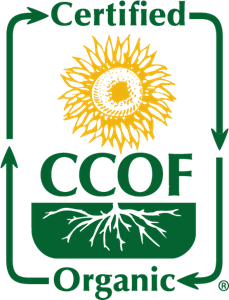For many Canadian food and beverage manufacturers, the demand for clean-label products is shifting how ingredients are sourced and used. One ingredient that has gained attention in formulation circles is Organic Carrot Powder. Known for its vivid orange hue and versatility, it is increasingly seen as a natural alternative to synthetic colorants. But what makes it suitable for large-scale manufacturing, and what should procurement managers and formulators keep in mind when sourcing in bulk?
What Is Organic Carrot Powder and How Is It Processed for Industrial Use?
Organic carrot powder is produced by cleaning, trimming, and drying organically grown carrots before milling them into a fine powder. Drying methods vary—spray-drying from carrot juice concentrate is often used to achieve uniform particle size and solubility for beverage applications, while freeze-drying or dehydrating whole carrots preserves fiber and pigment for dry mixes and bakery systems.
For industrial buyers, understanding the processing method is critical. Spray-dried grades provide consistent color dispersibility in liquids, while whole-root powders add texture and natural bulk. Both options must meet organic certification standards, with clear traceability back to farm-level sourcing.
Why Are Food and Beverage Manufacturers Replacing Artificial Colors with Organic Carrot Powder?
The shift away from artificial additives is not just consumer-driven—it also affects compliance and label transparency. Organic Carrot Powder provides a naturally occurring orange pigment that aligns with clean-label expectations.
Unlike synthetic colors, carrot-derived pigments offer a plant-based source without chemical additives. This positions them as more acceptable in Canadian and international regulatory frameworks, where transparency and “minimally processed” claims matter. For manufacturers, using carrot powder allows labeling under “organic vegetable ingredient” or “organic carrot powder,” reducing the need for complex additive declarations.
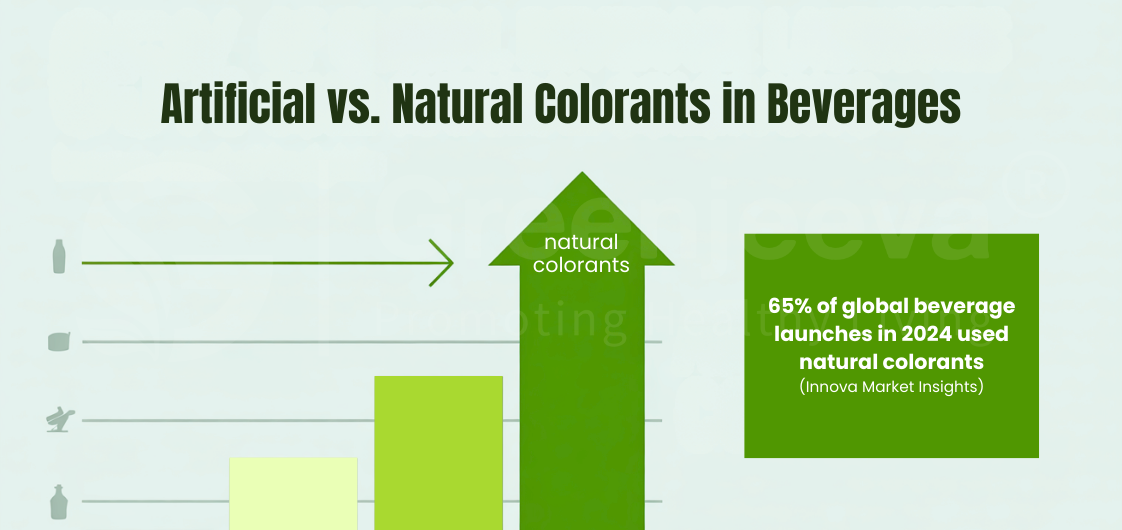
How Does Organic Carrot Powder Perform in Food and Beverage Formulations?
In beverage systems, fine spray-dried carrot powder disperses evenly, giving a bright orange tone while contributing minimal grittiness. In bakery and snack categories, coarser powders add both color and natural fiber, which can influence texture and density.
The stability of the pigment—largely dependent on carotenoid concentration—relies on storage conditions, packaging, and protection from oxidation. Bulk buyers often request data on color retention and moisture content to ensure consistent results in large-scale runs. Manufacturers choosing between grades should evaluate:
-
-Color intensity for beverages, confectionery, and coatings
-
-Particle size for mixes, seasonings, and bakery items
-
-Moisture control to avoid clumping in dry formulations
What Should Procurement Managers Verify Before Buying Bulk Organic Carrot Powder?
When sourcing bulk organic carrot powder, Canadian procurement teams should look beyond price. Key points to verify include:
-
-Certifications: USDA Organic, Canada Organic Regime (COR) equivalency, Non-GMO, Kosher, Halal if applicable.
-
-Documentation: Certificate of Analysis (COA), Material Safety Data Sheet (MSDS), and Organic Certificates.
-
-Testing: Heavy metals, microbial load, pesticide residue (even in organic products), and allergen cross-contact.
-
-Processing details: Drying method, carriers used in spray-dried powders, particle size, and bulk density.
-
-Logistics: Shelf-life data, packaging specifications, warehouse storage requirements, and lead times.
These checks ensure that buyers working with Organic Carrot Powder suppliers in Canada receive compliant, stable ingredients ready for industrial scale.
How Do Bulk Supply and Wholesale Pricing Work for Organic Carrot Powder?
In the Canadian market, MOQs typically range from 25 to 200 kilograms depending on the supplier and grade. Larger contracts for wholesale organic carrot powder may involve palletized shipments to reduce freight costs and simplify customs clearance.
Wholesale pricing depends on processing method, organic certification scope, and whether the powder is derived from whole roots or juice concentrate. Spray-dried powders with carriers may be more cost-effective but need label review, while carrier-free freeze-dried grades are often priced higher due to processing costs.
Working directly with a bulk organic carrot powder supplier in Canada or through a North American distributor often reduces lead times and ensures compliance with CFIA import requirements.
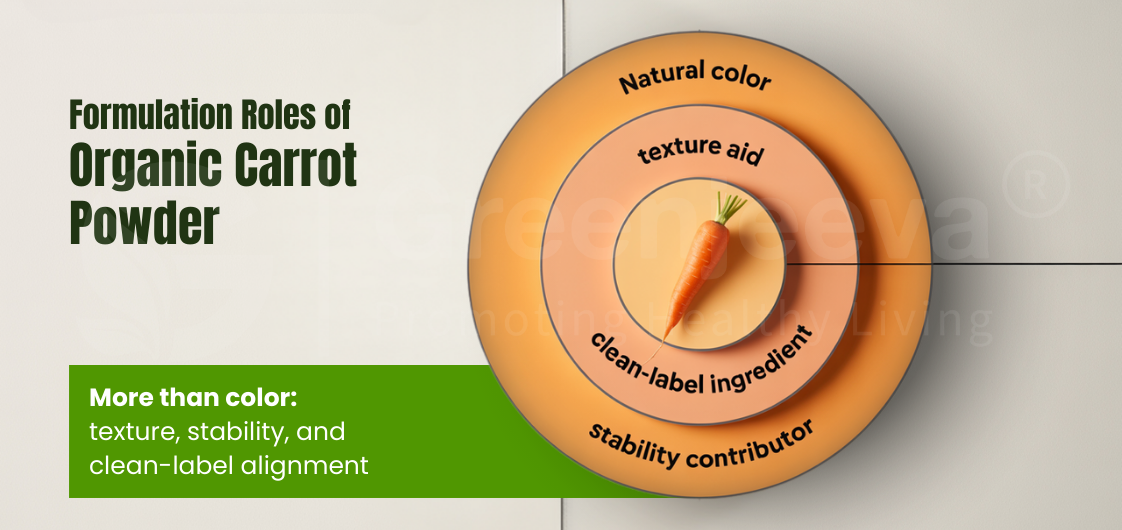
What Applications Make Organic Carrot Powder a Strategic Ingredient in Food and Beverage?
The versatility of Organic Carrot Powder allows it to be applied across several product categories:
-
-Functional beverages: instant mixes, smoothies, and juice blends where color uniformity is critical.
-
-Bakery and snacks: crackers, extruded snacks, and coatings requiring a natural orange hue.
-
-Confectionery: gummies and coatings needing a stable natural pigment.
-
-Seasonings and dry blends: soups, sauces, and powdered mixes requiring both color and flavor.
For each category, manufacturers assess grade type and processing method to balance cost, stability, and formulation performance.
What Lesser-Known Considerations Affect the Use of Organic Carrot Powder?
One lesser-discussed point is how processing impacts carotenoid stability. High-heat drying can reduce pigment concentration, while controlled drying or encapsulation methods help preserve brightness.
Another factor is the regulatory advantage—in Canada, “carrot powder” can be declared as an ingredient without referencing artificial additives, supporting clean-label positioning. For brands targeting export markets, organic equivalency across regions is also critical.

How Is the Market for Organic Carrot Powder Evolving in Canada?
Canadian demand for organic carrot powder is rising in parallel with the growth of clean-label beverages, snacks, and pet nutrition. Manufacturers are requesting application-specific grades, from beverage-soluble powders to coarse bakery blends.
Procurement managers report that stable supply and consistent quality are just as important as cost. R&D teams are also experimenting with microencapsulation and carrier-free drying methods to improve color stability and meet stricter label requirements. For buyers, this means increased options but also greater need to clarify specifications when working with suppliers.
Conclusion
Replacing artificial colorants with Organic Carrot Powder is no longer a niche practice—it is becoming a practical sourcing decision for Canadian food and beverage brands aiming for clean-label formulations. By verifying certifications, assessing processing grades, and aligning with reliable organic carrot powder suppliers in Canada, procurement teams and formulators can ensure their products meet both consumer expectations and compliance standards.
Green Jeeva Canada supports food and beverage manufacturers with consistent access to bulk organic carrot powder that meets global compliance requirements. Connect with our team to request samples, documentation, or wholesale pricing details.
**The Food and Drug Administration has not evaluated these statements. This product is not intended to diagnose, treat, cure, or prevent any disease.**


